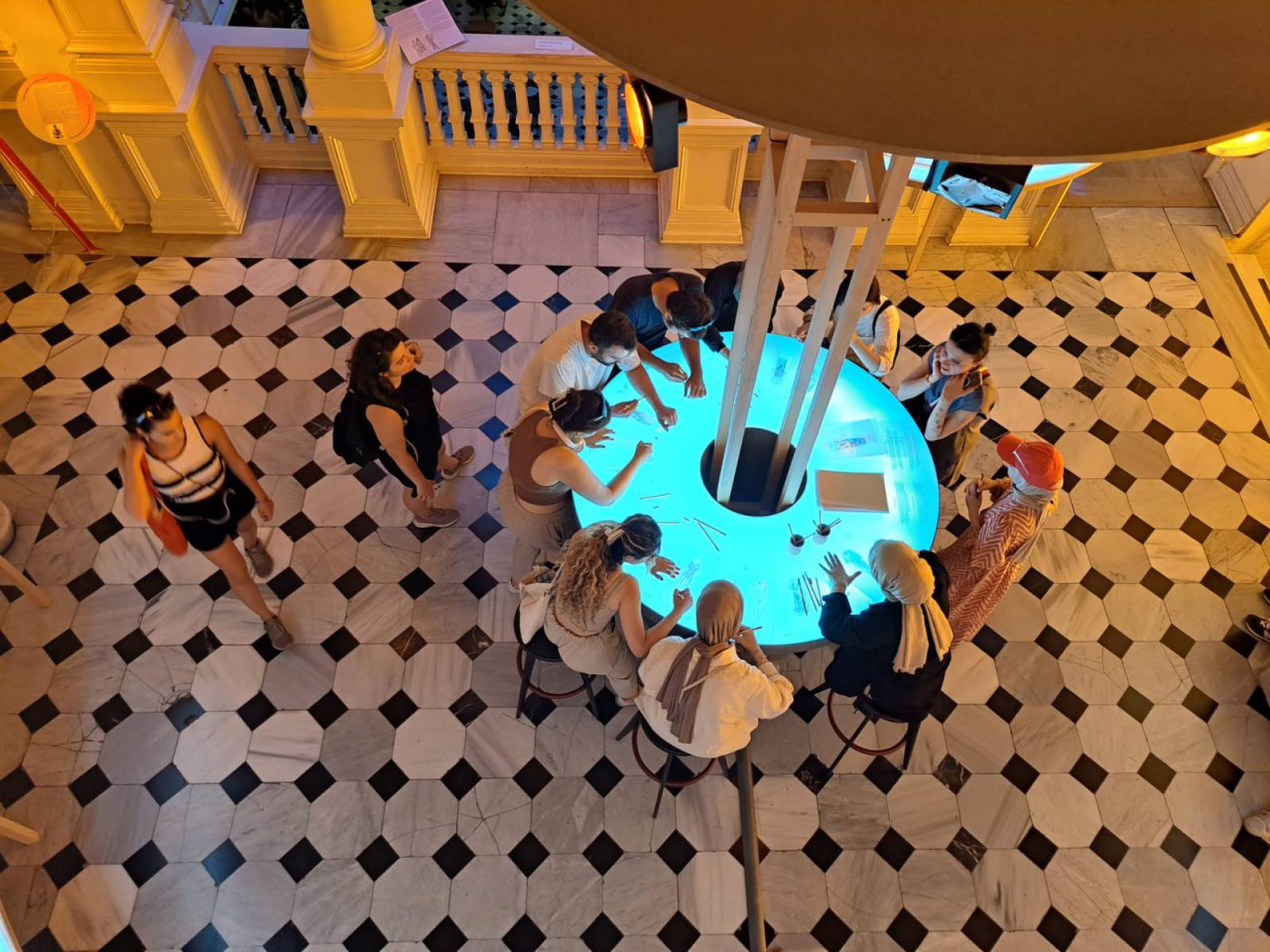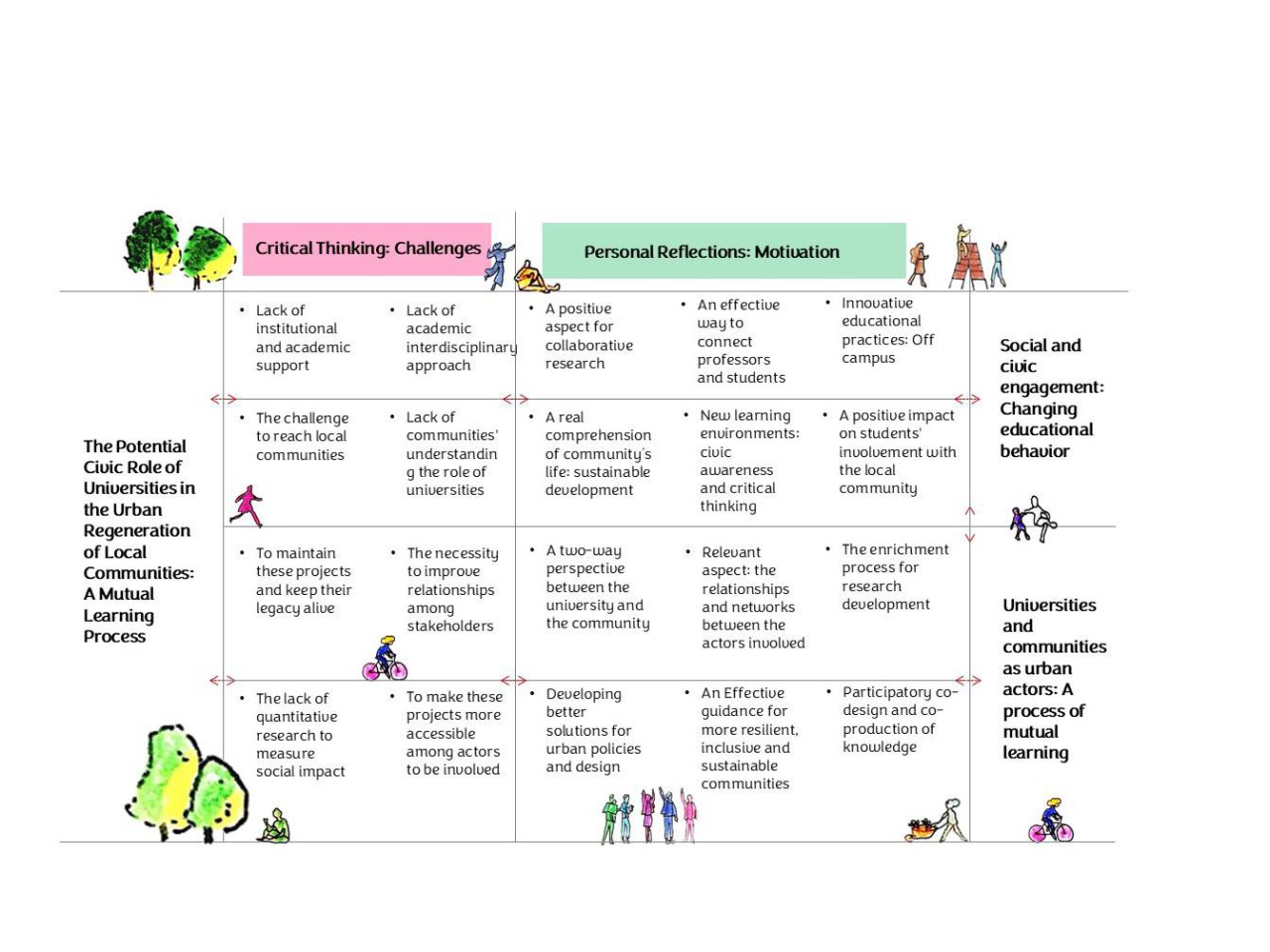The civic role of universities
Why is the civic role of universities relevant in developing better learning environments to achieve effective urban alternatives?
This reflection is based on my Ph.D. thesis titled, Universities as Potential Social Agents in the Urban Regeneration of Fragile Local Communities: A Mutual Learning Process. As I embark on this reflection, it is crucial to underscore universities' transformative and pivotal role in society, particularly their civic role. Their potential to shape the future is not just inspiring, but also a source of hope and optimism for what is to come.
The development of this research opened my mind to a broader reflection on the importance of universities' social and civic role in providing a mutual learning environment by working with local communities. The main question is whether universities can improve the educational process to such an extent that it can change society fundamentally.
In doing so, throughout the end of the 20th century and the beginning of the 21st century, the approach of the engaged universities and universities' third mission started to be emphasized. This concept and this new movement of universities are characterized by combining research, teaching, and engagement at the same level, therefore connecting the work of universities with society.
In this sense, approaching the social aspect means providing an environment to discuss, argue, and most importantly, to be more civic aware and foster critical thinking regarding society's urban issues.
To create a field of investigation and practice, universities are exploring the notion of University Social Responsibility (USR), a concept that refers to the ethical and social obligations of universities to their communities and the wider society. It is essential to understand the role of universities in achieving social responsibility, "not only as critical educational organizations that impact human society but also by fostering awareness of social responsibility for the younger generations."
What does this mean in practice? As I delved into my thesis and analysed the MSS Mapping San Siro project1 and the NoVoid project2, I came to a profound realization. Engaging in activities, adopting an interdisciplinary approach, and extending the reach of universities beyond their campuses can be a powerful tool. It not only helps students develop civic awareness about the urban issues facing local communities, but also empowers these communities to actively contribute to the creation of knowledge and the design of urban solutions.
In my personal experience, being able to do field work, interview professors and researchers, and participate in meetings at Off Campus3 space were the necessary tools to realize that I was also part of something. Indeed, universities and communities can have close relationships and become natural agents of urban change.
Of course, implementing social and civic engagement strategies is challenging. For instance, recognizing their importance inside and outside academia and integrating more students, researchers, and professors from different areas is challenging. Moreover, universities generally tend to keep strong links with traditional educational practices and, therefore, need more confidence to face the call of social responsibility and become natural agents of urban change.
Despite the challenges mentioned, it is essential to reflect on the advantages and necessities of universities innovating their educational behaviour. For instance, universities bring students and professors together and make the impact of their research more significant by finding alternatives to designing sustainable cities and communities.
Notes
- The MSS project, a significant initiative, started in 2013 under the coordination of Francesca Cognetti from the Department of Architecture and Urban Studies (DAStU) from the Politecnico di Milano, with the participation of Liliana Padovani from IUVA University of Venice, and supported by the DAStU and the Polisocial Program.
- The case of the NoVoid project highlights new ways to understand the (positive perspective) 'fragilities' of empty spaces in several cities in Portugal with a robust methodology of communication and different scenarios of urban alternatives.
- In April 2019, on the initiative of the Polisocial Programme, The Physical Off Campus space was the first among the other three in the contemporary peripherals of the city of Milan.
Author: Mariana Auad Proença
My academic path has shown me that I do research with my heart, which drives me to be creative and even more curious. Moreover, this experience gave me a broader understanding of how architecture can combine different research fields.
When you subscribe to the blog, we will send you an e-mail when there are new updates on the site so you wouldn't miss them.




Comments